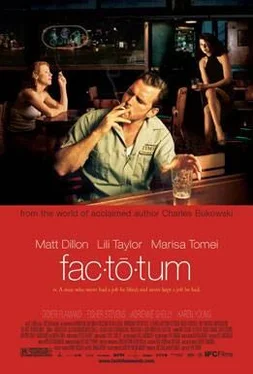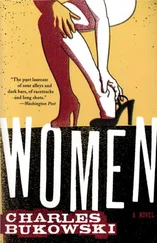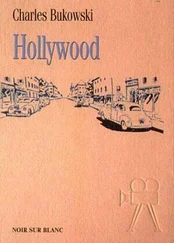Charles Bukowski - Factotum
Здесь есть возможность читать онлайн «Charles Bukowski - Factotum» весь текст электронной книги совершенно бесплатно (целиком полную версию без сокращений). В некоторых случаях можно слушать аудио, скачать через торрент в формате fb2 и присутствует краткое содержание. Жанр: Современная проза, на английском языке. Описание произведения, (предисловие) а так же отзывы посетителей доступны на портале библиотеки ЛибКат.
- Название:Factotum
- Автор:
- Жанр:
- Год:неизвестен
- ISBN:нет данных
- Рейтинг книги:4 / 5. Голосов: 2
-
Избранное:Добавить в избранное
- Отзывы:
-
Ваша оценка:
- 80
- 1
- 2
- 3
- 4
- 5
Factotum: краткое содержание, описание и аннотация
Предлагаем к чтению аннотацию, описание, краткое содержание или предисловие (зависит от того, что написал сам автор книги «Factotum»). Если вы не нашли необходимую информацию о книге — напишите в комментариях, мы постараемся отыскать её.
Factotum — читать онлайн бесплатно полную книгу (весь текст) целиком
Ниже представлен текст книги, разбитый по страницам. Система сохранения места последней прочитанной страницы, позволяет с удобством читать онлайн бесплатно книгу «Factotum», без необходимости каждый раз заново искать на чём Вы остановились. Поставьте закладку, и сможете в любой момент перейти на страницу, на которой закончили чтение.
Интервал:
Закладка:
"I do believe they have."
"How about a couple of soft boiled eggs?"
"Sure. I think I'm going to live."
Jan put a pot of water on the stove, dropped in four eggs, and we waited.
64
I was there at 9 p.m. The Superintendent showed me where the timeclock was. I punched in. He handed me three or four rags and a large jar. "There's a brass railing runs around this building. I want you to shine that brass railing." I walked outside and looked for the brass railing. It was there. It ran around the building. It was a large building. I put some polish on the railing and then rubbed it off with one of the rags. It didn't seem to do much good. People walked by and looked curiously at me. I'd had dull stupid jobs but this appeared to be the dullest and most stupid one of them all.
The idea, I decided, is not to think. But how do you stop thinking? Why was I chosen to polish this rail? Why couldn't I be inside writing editorials about municipal corruption? Well, it could be worse.
I could be in China working a rice paddy.
I polished about twenty-five feet of the railing, turned the corner, and saw a bar across the street. I took my rags and jar across the street and went into the bar. There was nobody in there, just the bartender. "How ya doing?" he asked.
"Great. Give me a bottle of Schlitz."
He got one, opened it, took my money and rang it up.
"Where are the girls?" I asked.
"What girls?"
"You know. The girls."
"This is a nice place."
The door opened. It was Superintendent Barnes. "Can I buy you a beer?" I asked. He came over and stood beside me.
"Drink up, Chinaski, I'm giving you one last chance."
I drank the beer down and followed him out. We crossed the street together. "Evidently," he said, "you're not much good at polishing brass. Follow me." We went into the Times Building and up in an elevator together. We got out on one of the upper floors. "Now," he said, pointing to a long cardboard box on a desk, "that box contains fluorescent light tubes, new ones. You are to replace all burnt out light tubes. Take them out of the fixtures and put in the new ones. There's your ladder."
"O.K.," I said.
The Superintendent walked off and I was alone again. I was in some kind of storage loft. That room had the highest ceiling I had ever seen. The ladder stood thirty-six feet high. I had always had a fear of heights. I took a new light tube and slowly mounted the ladder. I had to remind myself again, try not to think. I climbed upwards. The fluorescent tubes were about five feet long. They broke easily and were hard to handle. When I reached the top of the ladder I peered down. That was a big mistake. A dizzy spell swept over me. I was a coward. I was up against a big window on one of the upper floors. I imagined myself falling off the ladder and out through the window, down through space until I hit the street. I watched the tiny automobiles cross back and forth down in the street below me, their headlights bright in the night. Then, very slowly, I reached up and removed a burnt out fluorescent light. I replaced it with a new light. Then I climbed down, feeling more relief with each step downward. When I reached the ground I promised myself that I'd never get on that ladder again.
I walked around reading things left on desks and tables. I walked into a glassed-off office. There was a note to somebody: "All right, we'll try this new cartoonist but he'd better be good. He'd better start good and stay good, we're not carrying anybody."
A door opened and there was Superintendent Barnes. "Chinaski, what are you doing in there?"
I came out of the office. "I'm a former student of journalism and I'm curious, sir."
"Is that all you've done? Replaced one light fixture?"
"Sir, I can't do it. I have a fear of heights."
"All right, Chinaski. I'm going to clock you out for tonight. You don't deserve another chance, but I want you to come back at 9 p.m. tomorrow night ready to do some work. And then we'll see."
"Yes, sir."
I walked with him toward the elevator. "Tell me," he asked, "how come you walk so funny?"
"I was frying some chicken in the pan and the grease exploded, it burned my legs."
"I thought maybe you had war wounds."
"No, the chicken did it."
We went down in the elevator together.
65
The Superintendent's full name was Herman Barnes. Herman met me at the timeclock the next night and I punched in. "Follow me," he said. He took me into a very dimly lit room and introduced me to Jacob Christensen, who was to be my immediate supervisor. Barnes walked off.
Most of the people working at night in the Times Building were old, bent, defeated. They all walked around hunched over as if there was something wrong with their feet. We had all been assigned work overalls. "All right," said Jacob, "get your equipment." My equipment was a metal wagon, divided into two bins. In one half stood two mops, some rags and a large box of soap. The other half contained a variety of colored bottles and cans and boxes of supplies and more rags. It was evident that I was to be a janitor. Well, I had been a night janitor once before in San Francisco. You smuggled a bottle of wine in with you, worked like hell, and then when everybody else had gone, you sat looking out the windows, drinking wine and waiting for the dawn.
One of the old janitors came very close to me and screamed in my ear: "_These people are assholes, assholes! They have no intelligence! They don't know how to think! They're afraid of the mind! They're sick! They're cowards! They aren't thinking men like you and me!_"
His screams could be heard all over the room. He looked to be in his mid-sixties. The others were older, most of them looked seventy or more; about one third were women. They seemed used to the old fellow's antics. Nobody acted offended.
"_They make me sick!_" he screamed. "_No guts! Look at them! Hunks of shit!_"
"All right, Hugh," said Jacob, "take your stuff upstairs and get to work."
"_I'll deck you, you bastard!_" he screamed at the supervisor. "_I'll deck you right in your tracks!_"
"Get going, Hugh."
Hugh angrily rolled his wagon out of there, almost running down one of the old women.
"He's that way," Jacob said to me, "but he's the best janitor we've got."
"It's all right," I said, "I like an action place."
As I rolled my wagon along, Jacob told me my duties. I was responsible for two floors. The most important part was the restrooms. Restrooms were always first. Clean the sinks, the toilets, empty the baskets, get the mirrors, replace the handtowels, fill the soap containers, use lots and lots of deodorant, and be sure there's plenty of ass-wipe and paper toilet seat covers. And don't forget the sanitary napkins in the ladies' john! After that, get the wastebaskets in the offices and dust the desks. Then you take this machine here and wax the halls, and after you finish that…
"Yes, sir," I said.
The women's restrooms, as usual, were the worst. Many of the women, apparently, simply left their used sanitary napkins on the floor in the stalls, and the sight of them, although familiar, was disturbing, especially with a hangover. The men's restrooms were somewhat cleaner but then men didn't use sanitary napkins. At least I was alone when I worked. I wasn't too good a mopper; often a wad of hair or a crushed cigarette butt would remain conspicuously in one of the corners. I'd leave it there. I was conscientious with the ass-wipe and the paper seat covers, however: I could understand that. Nothing is worse than to finish a good shit, then reach over and find the toilet paper container empty. Even the most horrible human being on earth deserves to wipe his ass. Sometimes I have reached over and there's no paper and then when you reach for a toilet seat cover they're suddenly out of those too. You stand up and look down and yours has just fallen into the water: After that you have few alternatives. The one I find most satisfying is to wipe your ass with your shorts, dump them in there too, flush, and clog the toilet.
Читать дальшеИнтервал:
Закладка:
Похожие книги на «Factotum»
Представляем Вашему вниманию похожие книги на «Factotum» списком для выбора. Мы отобрали схожую по названию и смыслу литературу в надежде предоставить читателям больше вариантов отыскать новые, интересные, ещё непрочитанные произведения.
Обсуждение, отзывы о книге «Factotum» и просто собственные мнения читателей. Оставьте ваши комментарии, напишите, что Вы думаете о произведении, его смысле или главных героях. Укажите что конкретно понравилось, а что нет, и почему Вы так считаете.










